In accordance with the wishes of the late Mr. Junichi Miyamoto, this scholarship is intended to contribute to the development of hydrogen research at Kyushu University. The award will provide tuition fee support for students with outstanding abilities in hydrogen research who are enrolled in the doctoral course,master’s course at Kyushu University and are expected to distinguish themselves as exceptional researchers in the future. The fund will enable such students to devote themselves to their research studies and contribute to the vitalization of the research activities in the graduate schools of Kyushu University.
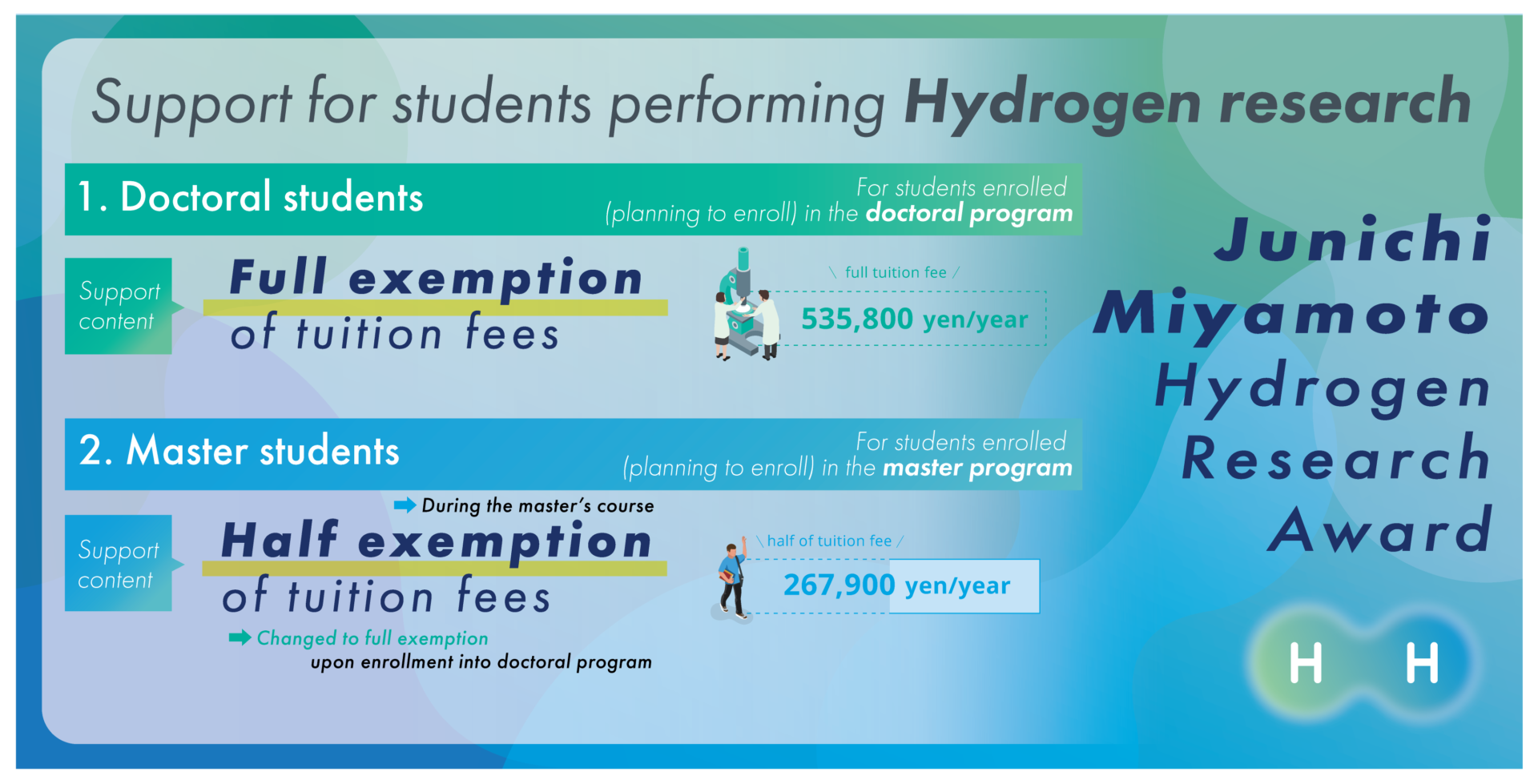
The call for October 2024 will be announced on this website around May 2024.
2024 Award Winners
【doctor department】

Affiliation Department of Mechanical Engineering, Faculty of Engineering
| Name | Yuya Hayashida |
|---|---|
| Title of the Research | Innovation of Boiling Cooling Using Micro Honeycomb Porous Plate Microhoneycomb for Fuel Cell Miniaturization |
| Outline of Research | Fuel cells, especially fuel cell vehicles, are required to be compact. The heat generation density increases accordingly, and cooling must be performed with a smaller heat transfer area. Boiling cooling using the latent heat of evaporation of the coolant is very effective for innovation of cooling system. The use of MHPP as a heat transfer surface can improve the critical heat flux (CHF, which is the limiting value of boiling cooling) to the top level in the world. In this study, we focus on the unsteady characteristics of boiling phenomena, which have not been discussed so far, to understand the CHF mechanism and to pursue methods to further improve the boiling cooling performance. |
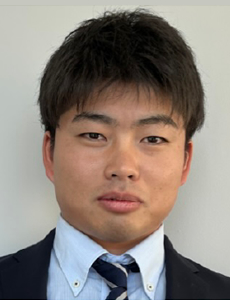
Affiliation Graduate School of Engineering, Department of Materials
| Name | Ryushiro Funasaki |
|---|---|
| Title of the Research | Electrode overvoltage isolation in anode-supported protonconducting solid oxide fuel cells |
| Outline of Research | The anode-supported proton conductivity solid oxide fuel cell(PCFC) suffers from significant electrode overpotential during power generation, hindering output efficiency. The primary cause of this overpotential is electrode reactions, which can be mitigated through optimization of electrode materials and electrolyte-electrode combinations. However, due to the use of thin-film electrolytes in anode-supported PCFCs, attaching a reference electrode for isolating electrode overpotential has been challenging. Therefore, in this study, we developed a novel anode-supported PCFC with a structure allowing reference electrode attachment. By verifying the reaction kinetics of the electrodes, this innovation enables efficient exploration of electrode materials and accelerates the optimization of constituent materials in anode-supported PCFCs. |
【master department】
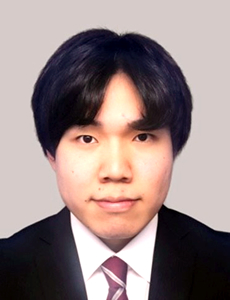
Affiliation Graduate school of Engineering, Department of Hydrogen Energy Systems
| Name | Yohei Nagatomo |
|---|---|
| Title of the Research | Elucidation of Electrode Reaction Mechanisms and Development of Performance Prediction Model for Reversible Solid Oxide Cells (r-SOCs) |
| Outline of Research | Reversible solid oxide cells (r-SOCs) are expected to be a regulating force in the utilization of renewable energy, as they realize fuel cell power generation and its reverse operation, steam electrolysis, in a single device. To establish design guidelines for practical applications, a detailed understanding of the electrode reaction mechanisms and development of performance analysis and prediction methods that can comprehensively handle both modes of power generation and electrolysis are required. In this research, we systematically elucidate the electrode reaction mechanisms of r-SOCs and construct an electrode performance model based on the electrode reaction processes. Furthermore, we aim to establish an innovative method for performance analysis and prediction that can be applied under various conditions. |
2023 Award Winners
【doctor department】
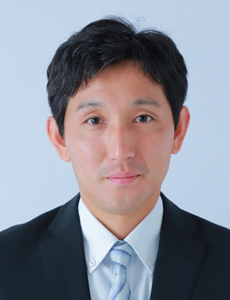
Affiliation Graduate school of Engineering, Department of Chemical Engineering
| Name | Atsushi Yamamoto |
|---|---|
| Title of the Research | Investigation of the influence of catalyst layer and carbon structure for cell performance using reaction and mass transport simulation of PEFC |
| Outline of Research | Recently, researches of mesoporous carbon are becoming active for higher performance and lower cost of polymer electrolyte fuel cells (PEFC). But, it is still unclear which factors of the carbon structure play an important role for the performance and durability. Therefore, we will clarify the influence of the internal structure of the carbon support for cell performance and durability by extending the reaction and mass transport simulation within the catalyst layer from the catalyst layer scale to the support scale. And we will propose design guidelines of catalyst layer and carbon structures for improving performance and durability. |
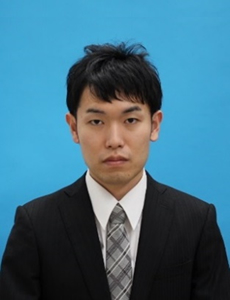
Affiliation Graduate school of Engineering, Department of Hydrogen energy systems
| Name | Norihiro Fukaya |
|---|---|
| Title of the Research | Development of high-durability electrolyte membranes using a model-based approach |
| Outline of Research | For commercial applications of fuel cells, this study will propose an efficient model for developing high-performance and high-durability materials required for the product. In addition, this method will be applied and demonstrated for high-gas-barrier electrolyte membrane (HGBM). First, the relationship between the durability and gas barrier properties of HGBM will be clarified, and a model will be developed to predict the durability of HGBM. The model will be then applied to predict the target characteristics of HGBM required for the product. Finally, a prototype of HGBM, which can meet the target, will be prepared. |

Affiliation Graduate school of Engineering, Department of Hydrogen energy systems
| Name | Zulfi Al Rasyid Gautama |
|---|---|
| Title of the Research | Research on gas transport of polymer electrolytes for PEFC application |
| Outline of Research | Polymer electrolyte fuel cell (PEFC) is a power source that converts hydrogen into water to generate electricity. One potential use of PEFC is to decarbonize the transport sector. Especially, PEFC is suitable to power heavy-duty vehicles (HDV) due to its lighter system and quick refueling compared to Li-ion battery. However, current PEFC system still lacks the durability and performance required for HDV application. In this research, I focus on performance and durability improvement by using hydrocarbon polymers that can control the gas permeability of the polymer electrolytes in PEFC. In case of the polymer electrolyte membrane (PEM), high gas barrier property is required to achieve high durability. Conversely, the ionomer in the catalyst layer requires high gas permeability to enhance reactant access to the catalyst. Through this simple approach, we aim to improve the PEFC durability and performance as well as to broaden the material options for the polymer electrolytes. |
【master department】

Affiliation Graduate school of Engineering, Department of Hydrogen Energy Systems
| Name | Shogo Nakamura |
|---|---|
| Title of the Research | Improvement of Fuel Cell Durability Using Metal Oxides to Suppress Chemical Degradation of Polymer Electrolyte Membranes |
| Outline of Research | Polymer electrolyte fuel cells (PEFCs) have been developed for various applications, with a strong focus on transportation and fuel cell electric vehicles (FCEVs). They are particularly applicable for heavy-duty vehicles (HDVs) such as trucks and buses. For effective application in HDVs, higher power output and increased durability compared to passenger vehicles will be required. In this study, we aim to clarify the mechanism of suppression of chemical degradation of the electrolyte membrane by the metal oxide and maximize the chemical durability of PEFCs. Moreover, we aim to establish design guidelines for PEFCs with necessary and sufficient durability by optimizing the chemical degradation suppression effect. |
Spring Semester 2022
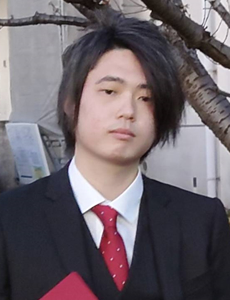
Affiliation IGSES, Plasma and Quantum Science and Engineering
| Name | Hikona Sakai |
|---|---|
| Title of the Research | Elucidation of turbulence-driven transport physics in hydrogen isotope plasmas through the development of measurement equipment |
| Outline of Research | Through developing a turbulence measurement system, a comprehensive understanding of plasma confinement by focusing on two physical phenomena in hydrogen isotope plasmas is aimed. The first is to clarify the behavior of turbulence and its contribution to transport inside the ITB (internal transport barrier), which has been reported to improve transport through experiments and simulations. Second, the interaction between macroscopic fluctuations and turbulence excited by fast ions simulating α-particles generated in a fusion reactor and their transport changes will be pursued. |
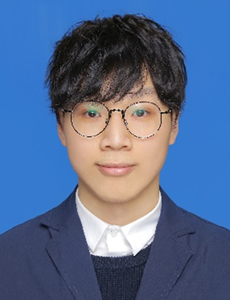
Affiliation Graduate school of Engineering, Department of Mechanical Engineering
| Name | WEI XUESONG |
|---|---|
| Title of the Research | Dramatic improvement of critical current density based on the analogy of boiling and water electrolysis |
| Outline of Research | The world’s energy consumption is increasing year by year, and renewable energy power generation has received a great deal of attention in recent years. For the demand of using the excess energy generated by renewable energy more efficiently without wasting, there is a need to develop alkaline water electrolysis, which can transform excess generated electricity into hydrogen, as a large-scale and low-cost electricity storage technology. Therefore, based on the analogy between boiling and water electrolysis, we applied the cooling method by using a honeycomb porous plate, which significantly improved boiling Critical Heat Flux to alkaline water electrolysis and improved the performance of water electrolysis. To clarify the mechanism of water electrolysis improvement from the microscale, we develop a honeycomb porous electrode creation technology with which a honeycomb porous structure can be formed by a self-organization process, then build a theoretical model based on the experimental results. |
Affiliation Graduate school of Engineering, Department of Hydrogen Energy Systems
| Name | Takahiro Uemura |
|---|---|
| Title of the Research | The Determination Mechanism of Fatigue Strength of Bended Pipe for High-Pressure Hydrogen Equipment |
| Outline of Research | Hydrogen refueling station equips hundreds of cone-and-thread fittings for connecting pipes, which increases construction cost. In addition, periodic confirmation works to prevent screw loosening also raise the regular maintenance cost. In such a situation, the use of bended pipes is required. Although the domestic regulation limits radius of bended pipe for use in high-pressure gas, its rationale is not established. This study aims to reveal the fatigue strength of bended pipes, which can be affected by various influencing factors, e.g., residual stress, work hardening and thickness change, by means of both experiments and numerical analyses, leading to a reasonable review of the existing regulation. |
Autumn Semester 2021
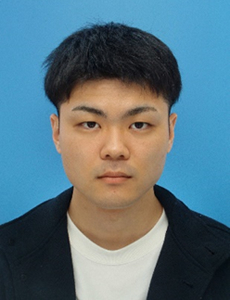
Affiliation Graduate school of Engineering, Department of Hydrogen Energy Systems (Early Completion 31st Aug 2023)
| Name | Masahiro Yasutake |
|---|---|
| Title of the Research | Developing Porous Transport Electrode for Low Iridium Loading and High Current Density Operation of Polymer Electrolyte Membrane Water Electrolysis (PEMWE) |
| Outline of Research | Green hydrogen production by water electrolysis is a key technology for realizing a decarbonized society. The issue of high green hydrogen production cost is primarily due to operating expenditure and capital expenditure. PEMWE especially has a clear advantage over other water electrolysis technologies due to its ability to operate at high current density. The overall electrode area could be reduced at high current density operation, leading to an overall reduction in capital expenditure. A significantly high amount of platinum group metal (PGM) catalyst used in the anode due to rate-determining anode reaction is also another issue. The objective of this research is to therefore develop a low PGM loading anode, while realizing high performance and high current density operation for overall reduction of capital expenditure. Currently, we have developed a novel anode, which has the potential to exhibit high catalytic activity and suppress mass transport resistance at high current density operation. |
| Activity Report, etc |
